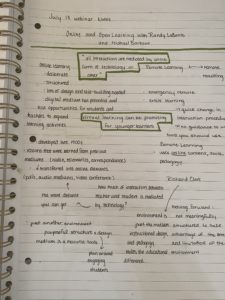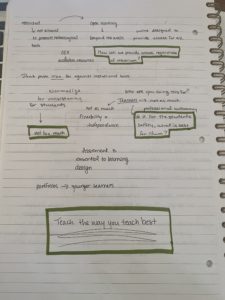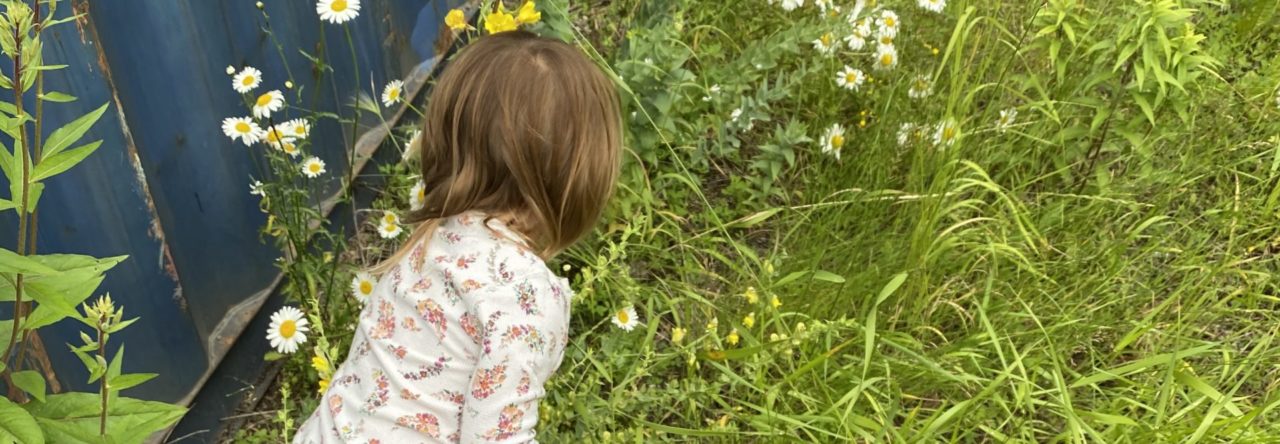Throughout this course there were only two webinars that occurred and unfortunately I wasn’t able to make either of them in person. However, I decided that for my last optional activity I was going to attend the webinar via the recording that was provided and follow along with the google docs notes that were created during the realtime meeting. I really enjoyed this webinar as the quests (Randy LaBonte and Michael Barbour), Dr. Verena Roberts, and the students who were n attendance provided insights and varying perspectives to the topics discussed. It was interesting to here the different views regarding the differences and similarities between online, open, and remote learning as some were in agreement and some conflicted.
My Notes:


Some of my main take aways:
- Teach for the students. What do they need? What is BEST for them?
- TEACH THE WAY YOU TEACH BEST!
- How can we provide access regardless of medium? Online learning is designed to provide those without access access to traditional education resources. Our goal is to provide equitable access. that doesn’t necessarily mean provide all students with the last technology and digital tools/resources. How can we provide access to successful education?
- Virtual learning can be promising for younger students
- all interactions are mediated by some form of technology
- Remote Learning – quick change in instructional procedures, uses online content, tools, resources, and sometimes pedagogy.
- Online learning – structured, need for skill building in educators, mainly digital medium
- Open learning – providing access beyond school walls , experience, tools, resources, etc.. not just digital
- online or traditional is just the medium – instructional design and pedagogy makes the educational difference
- plan around engaging the students.
I connected this activity to the course outcomes:
- Explore and engage with current literature on the distributed and open education movement – this activity relates to the readings done for topic 2 and allowed us the opportunity to hear about the perspectives and guidelines and further resources regarding open, online, and remote pedagogy from the authors of said readings. This allowed me to develop a better understanding of these concepts.
- Critically reflect on and articulate concepts around modality, pedagogy, and access, including distributed and open learning theory, online and open learning history, privacy laws, online learning communities, open research, and open data.- this activity allowed me to look further into the development of online learning as well as the differences between the theories and principles behind online, open, and remote learning.

Leave a Reply
You must be logged in to post a comment.